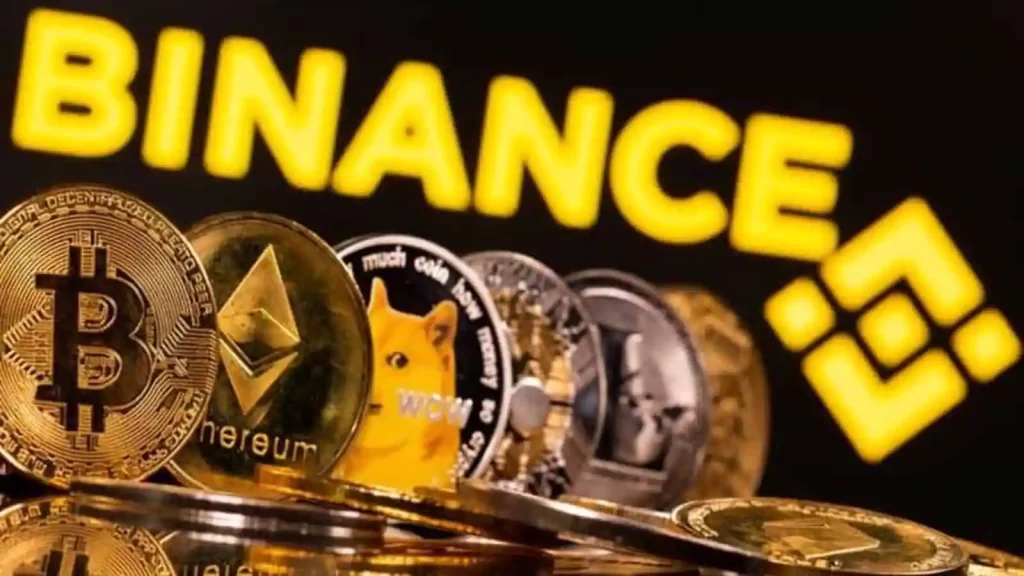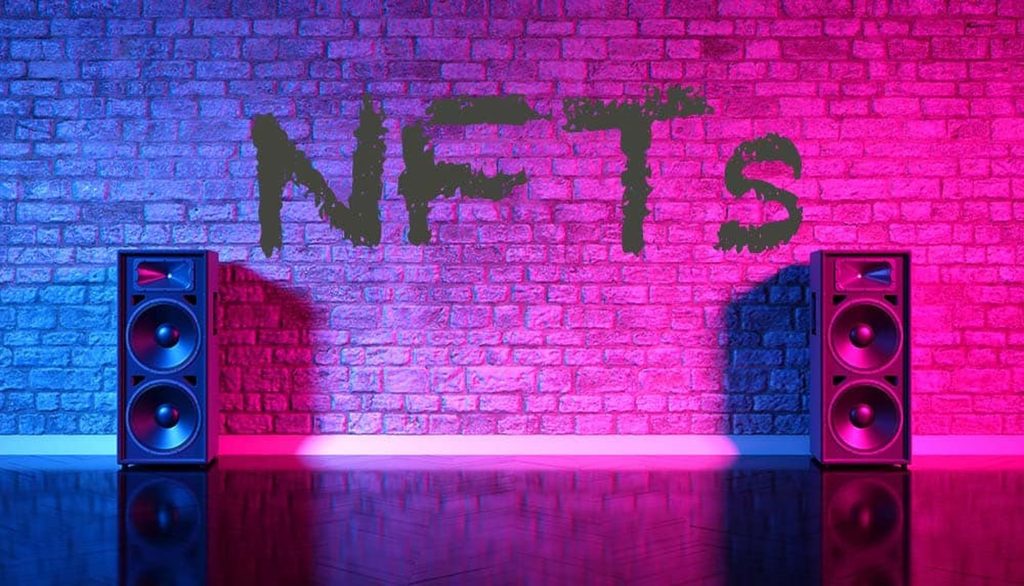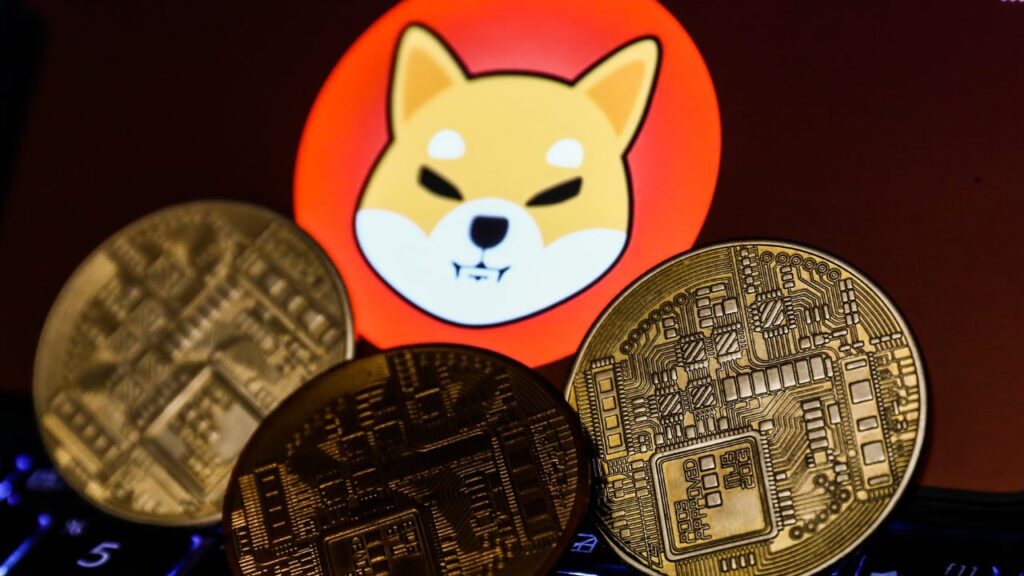Cryptocurrency exchange OKX is set to penetrate the Indian market and engage local talents as part of its strategy to advance the realm of Web3 applications, as reported by CoinDesk.
OKX’s Chief Marketing Officer, Haider Rafique, revealed that the company’s intention is to significantly expand its wallet services by tapping into India’s developer community.
Despite having 200,000 OKX Wallet users in India, this number accounts for only 5% of the country’s total Web3 user base.
Rafique expressed the company’s commitment to collaborating with the local community and identifying avenues to provide value.
Presently ranked as the sixth-largest cryptocurrency exchange worldwide in terms of trading volume, OKX operates from regional hubs in Dubai, Singapore, Hong Kong, and the Bahamas, rather than having a central global headquarters.
While OKX does not plan to establish a physical office in India, it intends to rely on local experts to lead its endeavors within the nation.
Rafique outlined a strategy to understand and engage with the developer community in India, thus determining the optimal approach for entering the local market.
In a notable move, OKX recently joined forces with blockchain platform Neo for an APAC Hackathon held in Bengaluru, India.
This partnership aimed to validate assumptions, comprehend the local culture, and provide support to the indigenous Web3 ecosystem.
READ MORE:BlockFi Advances Fund Recovery Efforts with Court Application
Although cryptocurrency trading is legal in India, no comprehensive regulations have been put in place by a central authority.
The sector operates with associated risks for investors, as cryptocurrencies lack legal tender status and cannot be utilized for banking purposes.
A 30% tax is currently imposed on crypto transactions within the country.
India’s Supreme Court, on July 27, criticized the Union government for the absence of crypto regulations and urged it to outline plans for regulating digital currencies due to a surge in criminal activities related to cryptocurrencies.
Rafique noted a shift in regulatory focus, highlighting that Indian authorities are distinguishing between Web3 and centralized finance (CeFi).
He clarified that their concerns lie more with platforms that provide fiat on-ramps, a service not offered by OKX in India at present.
Looking forward, Rafique expressed readiness to lead the way once India establishes a regulatory framework for cryptocurrencies.
In the backdrop of this, while OKX plans to recruit local staff to aid its Indian expansion, other Indian cryptocurrency exchanges like CoinSwitch and CoinDCX have faced staffing reductions due to the ongoing market downturn.
Other Stories:
What’s New in Crypto Staking This Year
Bitcoin Holds Strong Above $27,000 as Traders Maintain Bullish Outlook
South Korean Parliamentary Subcommittee Rejects Expulsion Motion Over Cryptocurrency Controversy
Former professional soccer legend Ronaldinho Gaúcho has provided his testimony during a congressional hearing in Brazil, disavowing any involvement in a purported cryptocurrency pyramid scheme that bore his name and is claimed to have defrauded $61 million.
Appearing before a parliamentary committee inquiry on August 31, Ronaldinho staunchly rejected any connection to the scheme dubbed “18kRonaldinho,” which had promised daily crypto returns of 2%.
A legal suit was initiated against the company in pursuit of $61 million in restitution for damages.
Ronaldinho asserted that he had never entered into any partnership with the company and that it had exploited his name and likeness without obtaining his consent.
He argued that he, too, was a victim of the alleged fraudulent enterprise.
During the hearing, visual materials were presented showcasing the promotional materials of 18kRonaldinho, featuring images of Ronaldinho himself.
One such image displayed Ronaldinho alongside the phrase “Enjoy up to 2% daily returns on your money.” Ronaldinho clarified that these images had been captured as part of a contract he signed with a company subsidiary engaged in watch sales.
However, he emphasized that the contract was eventually nullified in October of the same year, having never been acted upon.
READ MORE: BlockFi Advances Fund Recovery Efforts with Court Application
In response to inquiries from Aureo Ribeiro, the president of the inquiry, Ronaldinho refrained from commenting on whether he intended to reimburse those who had invested in the company.
Likewise, he chose not to respond when questioned about the pending $61 million lawsuit.
Ronaldinho’s nonattendance at two prior hearings linked to the inquiry, most recently on August 24, was addressed during the proceedings.
He explained that unfavorable weather conditions had prevented his participation.
The hearing held on August 31 represented Ronaldinho’s final opportunity to appear before the congressional committee.
Failure to attend could have resulted in potential fines or even arrest, with authorities authorized to compel his presence at the hearing.
The inquiry was launched in June with the objective of examining allegations of crypto pyramid schemes.
Conducted by Brazil’s lower house, the Chamber of Deputies, the investigation focuses on 11 companies accused by the country’s Securities and Exchange Commission of making false promises of lucrative returns through cryptocurrency investments.
Other Stories:
What’s New in Crypto Staking This Year
Bitcoin Holds Strong Above $27,000 as Traders Maintain Bullish Outlook
South Korean Parliamentary Subcommittee Rejects Expulsion Motion Over Cryptocurrency Controversy
Binance’s new art competition is set to put one lucky winner’s design front and center on the helmet of Alpine Formula One team’s racing driver, Pierre Gasly, during the Abu Dhabi Grand Prix on November 26, 2023.
Crypto giant Binance has unveiled an exciting helmet design contest, inviting submissions for the artwork that will grace Gasly’s headgear.
The talented creator will have their masterpiece displayed proudly on Gasly’s helmet, a notable figure who secured victory at the 2020 Italian Grand Prix.
Gasly enthusiastically shared his thoughts on the collaboration with Binance, emphasizing the opportunity it offers to connect with the worlds of both Formula One and cryptocurrency in a novel and imaginative manner.
The call for designs is open to everyone, irrespective of whether they are Binance users, welcoming a diverse range of Formula One fans to join in.
The deadline for submitting designs is September 8, and the fortunate victor will be unveiled by September 15.
Emphasizing the significance of artwork that echoes Binance’s values and pioneering spirit while simultaneously resonating with the motorsport community, Gasly asserted that the winning design will serve as a testament to their shared innovation.
READ MORE: Digital Currency Group Reaches Agreement with Genesis Creditors for Potential Recovery
He eagerly anticipates showcasing the triumphant creation at the esteemed Abu Dhabi Grand Prix.
As an extra perk, the chosen designer will receive a personally autographed replica of the helmet from Gasly.
Binance’s strategic partnerships extend beyond the racing track; the exchange has previously aligned with prominent figures such as soccer icon Cristiano Ronaldo and top-tier football clubs to enhance fan engagement.
Despite the intricate regulatory landscape that Binance navigates, the platform continues to forge connections with influential celebrities to maintain its prominence among cryptocurrency investors.
Most recently, on August 21, Binance unveiled a collaboration with music legend The Weeknd for a groundbreaking Web3-powered concert tour, titled “After Hours Til Dawn”.
In an exciting twist, Australian fans will have access to two unique non-fungible tokens (NFTs) — Souvenir NFTs and Tour NFTs — offering fresh avenues to interact with The Weeknd’s music and persona.
In a display of their commitment, Binance pledged a generous $2 million donation to The Weeknd’s XO Humanitarian Fund as part of this unprecedented partnership.
Other Stories:
dYdX Unlocks $14.02 Million in DYDK Tokens for Community and Trader Rewards
Federal Judge Overturns SEC’s Denial of Grayscale’s Bitcoin ETF
Grayscale Bitcoin Trust’s Negative Price ‘Discount’ Expected to Reverse by 2024
Binance Australia’s General Manager, Ben Rose, expressed his confidence in the eventual decisions of Australian regulators regarding digital asset laws in the country.
Speaking at the Intersekt Fintech conference in Melbourne on August 31, Rose emphasized the government’s commitment to crypto policy development and believed that the right outcomes would be achieved.
This optimism contrasted with recent challenges faced by the crypto industry, including Binance Australia.
Regulatory scrutiny and banking restrictions had impacted the exchange, with payments firm Cuscal severing ties due to perceived scam and fraud risks on May 18.
Consequently, Binance Australia suspended Australian dollar trading pairs and deposits, facing additional hurdles as major banks like Westpac and National Australia Bank restricted transfers to “high-risk exchanges.”
Ben Rose acknowledged these difficulties but stressed Binance’s dedication to restoring banking connections and fiat services for its one million Australian customers.
He engaged in constructive discussions with regulatory bodies like the Treasury and ASIC, indicating positive industry-regulator collaboration.
Rose remained confident that Australia’s pivotal decision-making process, particularly in framing licensing frameworks, would have a significant impact.
He had just participated in a round table with the Treasury and ASIC, witnessing productive engagement between stakeholders.
Similarly, Christian Westerlind Wigstrom, from Monoova, an Australian payments provider, shared insights on the ongoing discussions between crypto exchanges and policymakers.
READ MORE: What’s New in Crypto Staking This Year
Wigstrom acknowledged banks’ concerns about scams and urged nuanced conversations between regulators, banking entities, and crypto industry leaders.
Wigstrom emphasized the need to address scams proactively and collaboratively, rather than resorting to blanket bans on crypto-related fund transfers.
He believed that such an approach would lead to a more effective solution to the persisting issue of scams within and beyond the crypto sector.
In terms of regulatory progress, Australian Treasury Assistant Secretary Trevor Power projected the introduction of crypto-specific legislation for Australian crypto firms in 2024.
This timeline indicates the government’s ongoing commitment to establishing comprehensive regulations for the crypto industry within the country.
Overall, Binance Australia’s Ben Rose and other industry stakeholders expressed confidence in Australia’s regulatory journey, hoping for timely decisions that would both safeguard the industry and foster innovation.
The ongoing dialogue between regulators, financial institutions, and crypto leaders was seen as a positive step toward achieving these goals.
Other Stories:
BlockFi Advances Fund Recovery Efforts with Court Application
South Korean Parliamentary Subcommittee Rejects Expulsion Motion Over Cryptocurrency Controversy
Bitcoin Holds Strong Above $27,000 as Traders Maintain Bullish Outlook
TinyTap, a subsidiary of Animoca Brands specializing in educational technology (ed-tech), has revealed its latest advancements on August 30th, featuring the integration of cutting-edge artificial intelligence (AI) and nonfungible token (NFT) tools tailored for educators and parents.
With the newly integrated AI, both educators and platform users can now effortlessly craft educational games through topical prompts.
These prompts trigger the AI to swiftly generate corresponding games in mere minutes.
This update also introduces a text-to-image feature, enabling the creation of dynamic educational visuals to enrich the gaming experience.
The AI technology draws from a wealth of data amassed over a decade within the TinyTap system.
This database comprises the “learning architecture” gleaned from more than 250,000 games, millions of activities, and over 170 million play sessions.
Yogev Shelly, CEO of TinyTap, emphasized that the AI-generated content is carefully curated, ensuring alignment with specific age ranges:
“We have incorporated governors within the output to ensure games exist within the desired age range.”
Shelly elaborated that topics evolve from explanations to comprehensive activities.
Although the current beta tools are restricted to single-topic prompts, the future vision is to expand AI integration for richer and more engaging game creation.
Shelly highlighted that these tools expedite content development and access, ultimately empowering educators and parents to offer tailor-made learning experiences for individual children.
READ MORE: Anticipation Grows as Bitcoin Halving Nears, Experts Predict Surge Beyond $100,000
The roadmap of TinyTap also includes an AI tool named “Practice Anywhere,” which transforms existing media like educational YouTube videos into interactive content and games.
Animoca Brands’ Co-founder and Executive Chairman, Yat Siu, lauded the potential of AI in the education technology sector, predicting that streamlined content production will lead to an extensive educational library accessible to educators and parents.
Beyond AI enhancements, in the upcoming Q4, TinyTap plans to collaborate with Open Campus.
This partnership will enable NFT holders and EDU token holders to mint the educational games they create as NFTs.
This innovation is anticipated to invigorate the educational ecosystem, injecting new vitality into the field. Shelly remarked that “Teachers are some of the world’s biggest content creators…
These teachers will be able to reach wider audiences and start earning from beyond their classrooms.”
Amid the burgeoning concept of a “smart education system,” integrating blockchain, decentralized autonomous organizations, NFTs, and AI components, industry leaders inside and outside the Web3 realm have been underlining the transformative potential of this paradigm shift.
TinyTap’s recent advancements stand as a testament to the ever-evolving landscape of educational technology.
Other Stories:
Argo Blockchain Shows Resilience with 50% Reduction in Half-Year Losses
Shibarium Surpasses 100,000 Wallets in 24 Hours Post-Relaunch
The recent enforcement action by the United States Securities and Exchange Commission (SEC) against an NFT project has ignited a debate within the community, raising concerns about potential repercussions for similar projects falling under the same description and becoming targets for future SEC actions.
On August 28, the SEC took legal action against entertainment company Impact Theory, alleging the sale of unregistered securities through their NFTs named “Founder’s Keys.”
The SEC claims these NFTs were marketed as investments in the company, resulting in a purported fundraising of approximately $30 million.
The SEC contends that the NFTs in question meet the criteria for investment contracts and should be classified as securities.
According to the commission, the company violated the Securities Act of 1933 by conducting NFT sales without proper registration.
However, not everyone concurs with the SEC’s stance.
On the same day, SEC commissioners Hester Peirce and Mark Uyeda expressed their dissent, arguing that the statements made by the company and purchasers cited in the order do not constitute the kind of promises that form an investment contract.
Peirce and Uyeda further highlighted the SEC’s inconsistency in not pursuing enforcement actions against sales of other collectible items like watches and paintings that also come with vague promises of brand-building and increased resale value.
The incident has elicited reactions from community members who believe that numerous NFT projects align with the SEC’s description.
READ MORE: Europe Welcomes First-Ever Bitcoin ETF
A representative from the well-known NFT collection Azuki noted the potential significance of the case, suggesting that multiple NFT projects could share similarities with the charged project.
Critics contend that many NFT project founders, akin to Impact Theory, promote their offerings by enticing potential buyers with promises of profits tied to the project’s success.
In a conversation with Cointelegraph, Oscar Franklin Tan, Chief Legal Officer of NFT platform Enjin, expressed concerns over labeling all NFTs as securities.
Tan emphasized the diverse nature of NFTs, which can range from visual art to health records and property titles.
He cautioned against stifling creators’ exploration of various Web3 models due to regulatory uncertainty.
Tan emphasized the need for clearer regulatory guidelines from the SEC to prevent creators from inadvertently producing investment products and hindering the potential benefits of Web3 models.
This situation is not the first instance where NFTs have been debated in the context of securities.
Earlier in the year, a U.S. judge indicated that NBA Top Shot NFTs might qualify as securities based on the legal relationship established between investors and promoters.
As the debate rages on, the outcome of this case could set a precedent for the classification of NFTs in terms of securities regulation, shaping the future landscape of NFT projects and their interactions with regulatory authorities.
Other Stories:
Argo Blockchain Shows Resilience with 50% Reduction in Half-Year Losses
Shibarium Surpasses 100,000 Wallets in 24 Hours Post-Relaunch
Anticipation Grows as Bitcoin Halving Nears, Experts Predict Surge Beyond $100,000
A federal judge has overturned the United States Securities and Exchange Commission’s (SEC) denial of Grayscale Investments’ exchange-traded fund (ETF) proposal for its Bitcoin Trust.
However, experts caution that this ruling does not guarantee the immediate approval of the first Bitcoin ETF in the country.
Judge Neomi Rao of the U.S. Court of Appeals for the District of Columbia Circuit ruled on August 29 that Grayscale’s Bitcoin ETF plan was “materially similar” to already approved Bitcoin futures exchange-traded products by the SEC.
Rao’s decision largely criticized the SEC’s reasoning for rejecting Grayscale’s ETF, which was based on the ETF not being “designed to prevent fraudulent and manipulative acts and practices.”
Consequently, the matter will be sent back to the SEC for further review.
The U.S. SEC has consistently rejected applications for spot cryptocurrency ETFs thus far. Various applications, including those from BlackRock, ARK Invest, Bitwise Asset Management, and others, are currently under review.
The commission retains the authority to delay decisions on these applications, potentially postponing approvals until March 2024.
The SEC has not yet publicly commented on the appeals court’s ruling, but reports suggest that the commission will assess the case to determine its subsequent steps.
READ MORE: Argo Blockchain Shows Resilience with 50% Reduction in Half-Year Losses
While the SEC may contest the ruling, experts speculate that Grayscale’s initial triumph might set a precedent for future approvals.
ETC Group’s CEO, Tim Bevan, expressed confidence that the victory would pave the way for U.S. spot Bitcoin ETFs despite an anticipated SEC appeal.
He predicted a likely mass approval of applications meeting requirements, possibly occurring in the first quarter of 2024.
Alex Adelman, CEO and co-founder of Lolli, contended that the appeals court’s decision would pressurize the SEC to reconsider its stance on spot Bitcoin ETFs.
Adelman perceived the surge in BTC price following the news as a “vote of confidence” in investment products linked to Bitcoin.
The Crypto Council for Innovation (CCI) spokesperson noted that the ruling broadens the scope for various investors to introduce spot Bitcoin vehicles in the U.S., bringing spot Bitcoin ETFs closer to potential launch.
The next steps for Grayscale or the SEC remain uncertain. Grayscale could rework its application to align more closely with a Bitcoin futures-linked ETF.
Alternatively, the SEC might opt for an “en banc” hearing involving all judges on the D.C. circuit, rather than the three who presided over the Grayscale case.
Other Stories:
Shibarium Surpasses 100,000 Wallets in 24 Hours Post-Relaunch
Europe Welcomes First-Ever Bitcoin ETF
Anticipation Grows as Bitcoin Halving Nears, Experts Predict Surge Beyond $100,000
Shibarium, the innovative layer-2 blockchain designed for Shiba Inu, has celebrated a significant milestone, surpassing 100,000 wallets registered on its platform.
Impressively, within a mere 24 hours following its re-launch on August 28, an impressive 35,000 new wallets joined the platform.
Shytoshi Kusama, the co-founder and lead developer of Shiba Inu, officially announced Shibarium’s restoration in an August 28 blog post.
Initially, Shibarium boasted 65,000 wallets and had processed 350,000 transactions.
These figures, however, have experienced a remarkable ascent.
A striking 55.8% increase in wallet count and a 20.2% surge in transactions have been documented since, as reported by Shibariumscan.io.
Presently, the Shibarium block explorer reveals a staggering 101,277 wallets that have facilitated an impressive 420,897 transactions across 344,614 blocks.
The network’s efficiency is evident through its average block time of just 5 seconds.
Kusama emphasized that the relaunch demonstrated the security of funds on the platform, reinforcing that they had always been safe.
He also extended gratitude to Sandeep Nailwal, co-founder of Polygon Labs, for lending a helping hand during the platform’s reboot.
READ MORE: Casino Gender: Which Games Do Men and Women Prefer?
Kusama noted that Polygon’s support was instrumental in achieving a successful resolution and praised their strategic decision to pivot and integrate with Polygon.
In the aftermath of the re-launch, SHIB, the native token of Shiba Inu, experienced a positive price movement, climbing by 3.6% to reach $0.00000825, as per CoinGecko data.
However, it is pertinent to note that SHIB remains 14.3% below its pre-outage price of $0.00000963.
Kusama attributed the initial outage to an overwhelming influx of transactions and users that led the platform to enter fail-safe mode.
Subsequently, the Shibarium team took robust measures to enhance server infrastructure, scaling it by an astonishing 1500%.
These enhancements were strategically implemented to alleviate congestion on-chain and ensure smooth functionality.
Shibarium’s significance lies in its position as an Ethereum layer-2 network, leveraging SHIB for gas fees.
The platform’s primary focus is on fostering the development of gaming and metaverse applications, showcasing its commitment to innovation within the blockchain and cryptocurrency ecosystem.
Other Stories:
Former FTX CEO Sam Bankman-Fried’s Legal Team Deems Trial Preparations Inadequate
Three Former Team Members Accused of $16 Million Theft from Pepecoin (PEPE) Multisig Wallet
Hashdex Challenges Status Quo with Innovative Approach in Pursuit of Bitcoin ETF Approval
Friend.tech, the latest decentralized social media (DeSo) app in the world of cryptocurrency, is facing significant backlash due to its recent decision to penalize users who opt for forks or copycat versions of its tokenized social media platform.
In a tweet from the official @friendtech X account on August 28, the company stated, “To make sure loyal users are rewarded fairly during our beta, users moving to forks and copies will automatically opt out of earning Points and forfeit existing points.”
This move was met with criticism, particularly from the crypto community, as it was seen as anti-competitive and contrary to the principles of the industry.
While Friend.tech did not explicitly mention any rivals, some users pointed to a new DeSo application named Shares, often referred to as “SocialFi,” that is set to enter public beta on August 31.
Friend.tech had been distributing “reward points” to its beta testers on a weekly basis, with plans to distribute a total of 100 million points over six months.
However, the purpose of these points was not clarified until an August 15 announcement, stating that they would serve a special purpose upon the app’s official release.
Speculations arose that these points could translate into friend.tech governance tokens or hold financial value for users, potentially leading to a native token airdrop in the future.
The community’s reaction to Friend.tech’s decision was swift and negative, with numerous users expressing disappointment in the approach.
READ MORE: Former FTX CEO Sam Bankman-Fried’s Legal Team Deems Trial Preparations Inadequate
Prominent trader CryptoKaleo criticized the move, stating that penalizing users for trying other platforms goes against the industry’s ethos. The sentiment was shared by others who deemed it an inappropriate response to competition in the Web3 arena.
Amid the uproar, the pseudonymous founder of friend.tech, known as “Racer,” issued an apology on August 29 through the app’s official X account.
Racer acknowledged the initial decision as a “stupid statement” made out of fear of potential competition, ultimately rescinding the penalization plan.
This controversy arose less than three weeks after Friend.tech’s public launch on August 11.
In the aftermath, the app witnessed a decline in key metrics such as user activity, inflows, and transaction volume.
According to data from Dune Analytics, transaction numbers on Friend.tech plummeted over 90% from their peak of nearly 525,000 on August 21 to fewer than 50,000 cumulative transactions on August 28.
In summary, Friend.tech, the emerging decentralized social media app in the cryptocurrency space, faced criticism for its decision to punish users who explore forks or imitations of its platform.
The backlash prompted an apology from the app’s founder, Racer, as it grapples with declining metrics post-launch.
Other Stories:
Casino Gender: Which Games Do Men and Women Prefer?
Hashdex Challenges Status Quo with Innovative Approach in Pursuit of Bitcoin ETF Approval
Three Former Team Members Accused of $16 Million Theft from Pepecoin (PEPE) Multisig Wallet
Bitcoin mining revenue, often termed as “hash price,” has plummeted to its lowest levels since the downfall of FTX in November 2022, despite the hash rate of the Bitcoin network reaching unprecedented heights.
As of August 18, the Bitcoin network’s hash rate surged to an all-time high of 414 exahashes per second (EH/s), indicating a remarkable 54% increase from the start of 2023 and an 80% surge over the past year, according to data from Blockchain.com.
While this surge in hash rate bolsters the network’s security, the situation isn’t as optimistic for Bitcoin miners.
Revenue for miners has experienced a significant decline, sinking to levels comparable to the market cycle’s nadir of approximately $16,500 in November 2022.
Presently, according to HashPriceIndex, the daily revenue stands at merely $0.060 per terahash per second, a stark drop from early May when the fervor surrounding the Bitcoin Ordinals inscription prompted heightened demand for block space.
Dylan LeClair, a market analyst, noted the juxtaposition of dwindling revenue and the peak hash rate.
READ MORE: IRS Proposes Simplified Reporting for Digital Asset Taxes, Faces Industry Scrutiny
LeClair emphasized that while more efficient mining rigs are continually being developed, a point of balance must be reached, where rising prices compensate for the escalating hash rates to ensure mining remains profitable.
The predicament has led Bitcoin miners to rely on funds generated from stock sales during the second quarter to weather the storm of the bear market.
According to Bloomberg, major publicly traded mining companies collectively raised around $440 million through stock sales in Q2, which temporarily sustained their operations.
Mark Jeftovic, curator of the Bitcoin Capitalist newsletter, highlighted a concerning trend.
Some mining firms, he pointed out, are disproportionately diluting shareholders, an action that could prove detrimental if the rate of dilution outpaces Bitcoin’s value increase.
He metaphorically likened this scenario to moving in the wrong direction on a treadmill, emphasizing the importance of aligning dilution and value appreciation.
In summary, the Bitcoin network’s hash rate has surged to unprecedented levels, bolstering its security.
Nonetheless, miners are grappling with plunging revenues, necessitating price adjustments to ensure profitability amid the soaring hash rates.
Mining companies have turned to stock sales to endure the market’s downturn, while experts underscore the importance of aligning dilution rates with Bitcoin’s value trajectory.
Other Stories:
Bitcoin’s $20,000 Value Holds Steady Over Six Years When Adjusted for Inflation
Former Worldcoin Insider Alleges Unlawful Practices and Mismanagement
Co-founder of Tornado Cash Cryptocurrency Service Released on Bail












